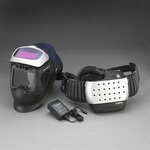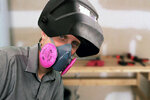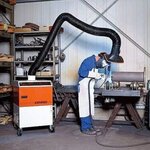Follow along with the video below to see how to install our site as a web app on your home screen.
Note: This feature may not be available in some browsers.









this is done by use of VDC arc welding m/c with high voltage diodes @ min of 6 and use of special alluminium weld rods argon gas is introduced to avoid oxidation on the surfaces


Alluminium will require high temperature and require different flux. You'll have to use gas welding as "pico" suggested.
Cheers





i do agree with biff44 that is exactly what i did when i was in school years backThere are aluminum alloy solders and fluxes specifically designed for this. You will most likely need a torch (like accetylene) unless the aluminum is very thin. The key is to clean the surface well (sandpaper, wire brush), flux it up, heat it uniformly but not enough to melt the aluminum, and apply the solder. I do it all the time for microwave waveguide fabrication.
**broken link removed**



alluminium needs an acid flux to make the job. try internet


If the joint will not be stressed, you might use an electrically conductive pen or epoxy.
Years ago Popular Mechanics and Popular Science ran ads for a kit that allows one to solder aluminum. The inventor claimed the secret was in the flux. The kit came with a stainless steel wire brush for cleaning the surface. Supposedly a plain steel brush (or steel wool) prevents a decent bond.
According to my experience, a clean aluminium surface can be tinned with SnPb (or most likely pure Sn) soft solder, scratching the surface with the solder iron tip. I didn't notice that oil application changes much, but the effect may depend on the exact chemical composition.
With special flux or flux-filled solder, even oxidized aluminium can be soft soldered. There are also special ultrasonic solder tools, that allow perfect alumiunium soldering without flux.
Soft solder has a low melting point of 196 °C (SnPb) respectively 220-230 °C (Sn), in so far, you don't need more power than for copper parts.